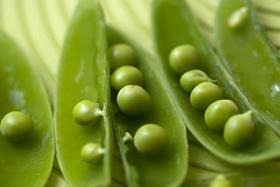
A series of eight webinars exploring the global opportunities, barriers and success stories surrounding legume production will kick off in April, with UK growers invited to attend for free.
The LegValue and TRUE project is delivering a programme of events hosted by experts from across Europe who aim to unlock the potential for greater global production.
UK farmers and industry stakeholders are being urged to participate by the Processors & Growers Research Organisation (PGRO), which is a partner member of the LegValue and TRUE project.
The online events mark the end of two collaborative EU Horizon 2020-funded projects, which aimed to empower legume-supported food and feed production across Europe. The creation of a new Legume Innovation Network will build on the projects’ legacies.
The events will include more details on the formation of the network, a stakeholders’ forum designed to promote awareness of new insights, services or requirements for commercially competitive production and consumption of legume crops in Europe.
It will link industry with researchers, policymakers, civic organisations, brokers/traders and consultants throughout Europe and wider afield, organisers said.
PGRO chief executive Roger Vickers explained: “Pulses have an incredibly bright future, both for farmers who want to grow a sustainable, diverse rotation, and for consumers seeking a versatile, protein-rich food with multiple health benefits.
“I believe that pulses can fit hand-in-glove with the UK’s new Environmental Land Management schemes, so now is an opportune time to re-double our efforts in sharing information and understanding, which is what this project is all about.”
Vickers pointed out that the world of legume research, innovation and trade is small compared to many other crop types and reflects relatively low current commercial values and investments surrounding legume crops.
“This is why we are working with our LegValue and TRUE partners to deliver a series of eight short webinars that will describe the current condition of entire legume value chains within Europe and outline opportunities for stimulating the transition of legumes to deliver a greater role in European agriculture through innovation,' he added.
“I am excited to also launch the Legume Innovation Network, a legacy of the two founding projects. It is my hope that it will link people with similar interests, provide opportunities for challenges to be resolved more-easily, with potential partners finding resources for mutual benefit, and directly help realise more sustainable agri-food systems.”



